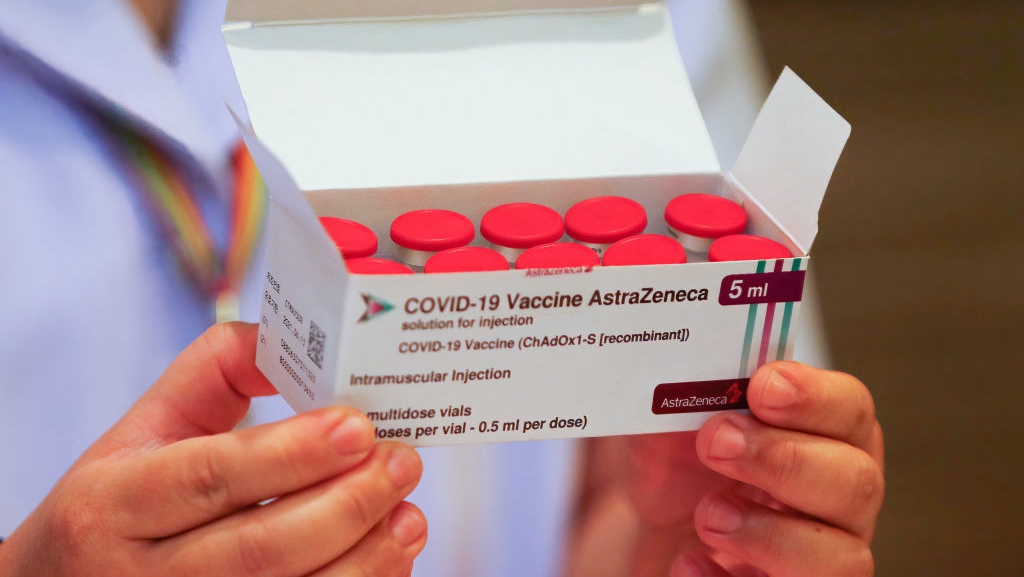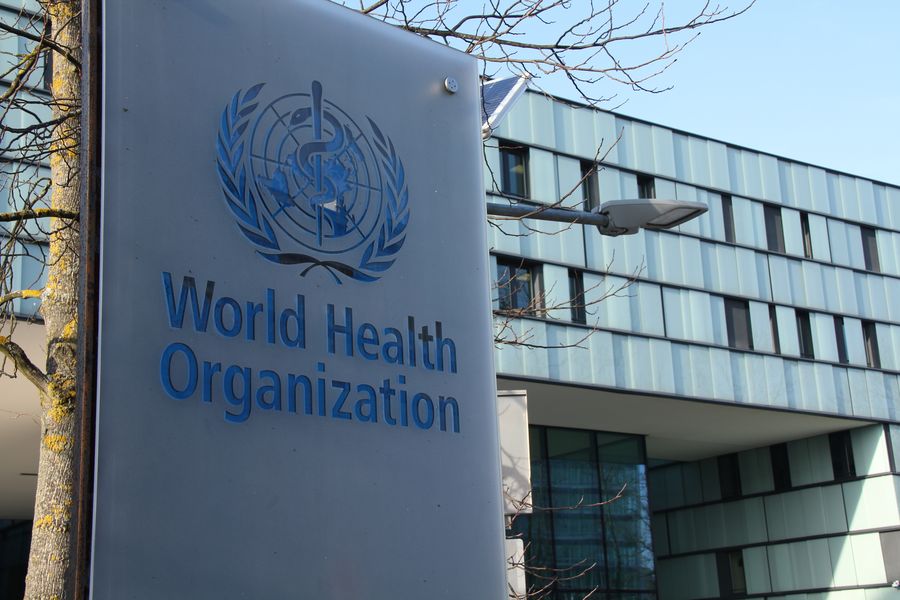
A box of the AstraZeneneca vaccine, March 12, 2021. /Getty
A box of the AstraZeneneca vaccine, March 12, 2021. /Getty
Editor's note: Jonathan Arnott is a former member of the European Parliament. The article reflects the author's opinions and not necessarily the views of CGTN.
In recent months, we've heard much about "vaccine nationalism" and "vaccine diplomacy." It seems that the word "vaccine" has become a modifier which can be applied to many words in order to create a new phrase.
There's another phrase, one which has been around for longer: "vaccine hesitancy." This is the growing tendency of people believing in anti-vaccine propaganda and refusing to take vaccines because they believe in conspiracy theories and scare stories circulating on the internet.
We've seen the effects of "vaccine hesitancy" already: since 2019, scientists had been warning about an outbreak of another disease. The significant drop in uptake of the measles vaccination pushed many countries below the threshold for herd immunity, making outbreaks inevitable. Lies have been told and shared on social media to such an extent that significant harm is inevitable.
The situation was already so bad in 2019 that the World Health Organization described vaccine hesitancy as "one of the top ten threats to global health." Vaccine hesitancy is a very real problem when it comes to the COVID-19 pandemic. A study from October 2020 revealed that 71.5 percent of people would be likely to accept a vaccine, ranging from 90 percent in China to just 55 percent in Russia.
People will tragically die in large numbers as a result of vaccine hesitancy. It is completely avoidable. I passionately believe that it is misguided, dangerous and wrong to publicly attack a vaccine for political reasons. Whether or not a particular vaccine is safe and effective is a question for science.
I have, in the past, strongly criticized those who seek to undermine China's vaccines – often with no greater logic than that they were produced in China. Politicized language has been used which could undermine public confidence.
So when I - as a British citizen - write also about the Oxford/AstraZeneca vaccine developed in the UK, I am not engaging in some form of special pleading about my own country. I care about lives being lost unnecessarily.
The WHO has reiterated that the AstraZeneca vaccine is safe. The European Medicines Agency is "firmly convinced" of its safeness. Clinical trials have shown it to be safe. In the United Kingdom, over 11 million doses have been administered. It is monitored in real-world trials. Yet, we've so far seen about 20 European countries suspend its use.

A view of the WHO headquarters in Geneva, Switzerland, January 22, 2020. /Xinhua
A view of the WHO headquarters in Geneva, Switzerland, January 22, 2020. /Xinhua
From the beginning, we've seen mixed messages over the AstraZeneca vaccine. The French President first described it as "quasi-ineffective," before changing his approach and supporting it. Now, France has suspended the use of the vaccine – whilst at the same time, its Europe Minister Clement Beaune is urging the EU to take legal action against AstraZeneca over the speed of supply.
This kind of confused messaging is not just a political problem. It is a life-or-death issue. France was already facing high levels of vaccine hesitancy. It already had over a million doses of the vaccine sitting around unused. France has administered just 7.5 million doses, whereas the UK – a nation of comparable population - has administered 26.5 million doses.
Nicola Magrini, the director general of Italy's medicines authority AIFA, reaffirmed the vaccine's effectiveness, yet Italy suspended its use anyway. Magrini criticized the Italian government, saying "the choice is a political one."
If you consider any group of tens of millions of people then, whether they have just been vaccinated or not, you would expect to see a substantial number of health conditions develop within a couple of weeks. In the case of vaccinations, where generally speaking the most vulnerable were vaccinated first, the number of such events is likely to be higher.
There are indeed blood clots occurring in vaccinated people, but no more frequently than the "background rate" in unvaccinated people. In the UK, it is 40 people out of 11 million: no more or less than would be expected. We have been here before. We know that even temporary suspensions lead to vaccine hesitancy: this has been documented, for instance in Japan in 2013 with the HPV vaccine.
If there is genuine evidence that any vaccine – by any manufacturer, anywhere in the world – causes rare but serious side effects, then there is a reasoned conversation which needs to take place to determine whether the benefits clearly exceed the risk of side effects. That is simply not the case with the AstraZeneca vaccine.
The decision by European governments to ignore the advice of the WHO, the European Medicines Agency, AstraZeneca, and the country which has administered the largest number of doses, is a dangerous one. This decision will lead to a delay in the vaccine rollout and increased vaccine hesitancy. There is only one winner from this decision: the COVID-19 virus.
(If you want to contribute and have specific expertise, please contact us at opinions@cgtn.com.)

